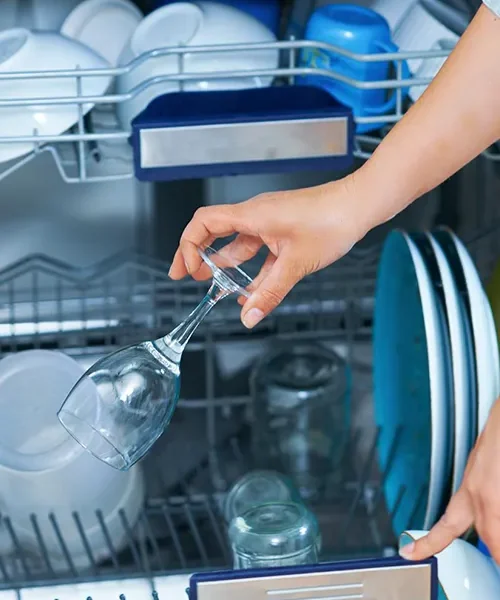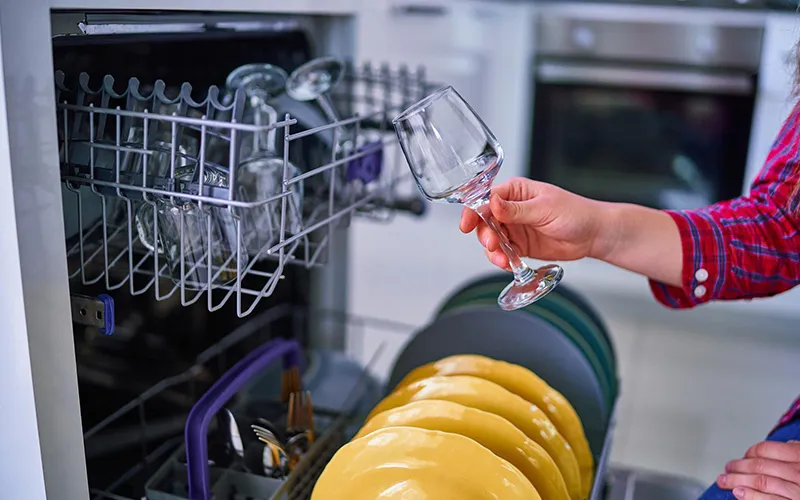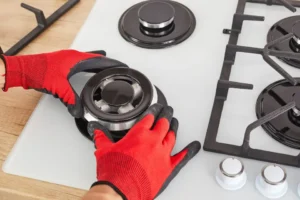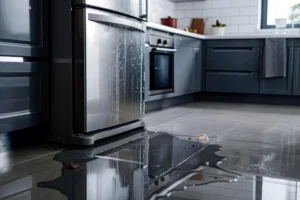Is Your Dishwasher Leaving Dishes Dirty? Here's What Might Be Wrong
Having a dishwasher at home is a modern convenience that many of us can’t imagine living without. However, it can be frustrating when you open the dishwasher after a cycle only to find your dishes still dirty. Here, we will explore the common causes behind this issue and provide insights into Dishwasher Cleaning Issues and the importance of seeking help from skilled appliance technicians for effective solutions.
Common Issues with Dishwasher Cleaning
1. Dirty Interior
Over time, grease, food particles, and mineral deposits from hard water can build up on the interior of your dishwasher, hindering its ability to effectively clean dishes. To prevent buildup, it’s essential to clean the interior regularly with a dishwasher cleaner or a baking soda and vinegar solution.
2. Clogged Spray Arm
The spray arm is responsible for distributing water throughout the dishwasher, ensuring that dishes are thoroughly cleaned. If the spray arm becomes clogged with food particles, soap scum, or mineral deposits, it can prevent water from reaching certain areas of the dishwasher, leading to incomplete cleaning. To clean the spray arm, remove it from its housing and gently scrub it with a soft brush.
3. Dirty Filter
The filter traps food particles and debris, preventing them from clogging the drain and interfering with the dishwasher’s cleaning cycle. Over time, the filter can become clogged, reducing its effectiveness. To clean the filter, remove it from its location and rinse it thoroughly under running water. For stubborn food particles, use a soft brush.
4. Low Water Temperature
Dishwashers typically require water temperatures of at least 120 degrees Fahrenheit to effectively clean dishes. If the water temperature is too low, it may not be able to break down grease and grime, resulting in subpar cleaning. Check the water heater temperature and ensure it is set high enough.
5. Hard Water Buildup
Hard water contains minerals that can build up on dishes, making them appear dull and impairing the dishwasher’s cleaning ability. Consider using a water softener or installing a water filtration system to reduce the amount of minerals in your water.
6. Incorrect Detergent Usage
Using the wrong type or amount of detergent can affect the dishwasher’s cleaning ability. Liquid detergents are generally more effective than powder detergents, and using too much detergent can create suds that prevent the dishwasher from operating properly. Follow the manufacturer’s recommendations for detergent type and amount.
7. Overloading or Improper Loading
Overloading the dishwasher can prevent the spray arms from reaching all areas of the dishwasher, leading to uneven cleaning. Additionally, improper loading can block the spray arms or trap food particles, further hindering the cleaning process. Load the dishwasher in a way that allows the spray arms to rotate freely and reach all surfaces of the dishes.
8. Faulty Water Inlet Valve
The water inlet valve is responsible for supplying water to the dishwasher. If the valve is faulty, it may not be able to provide enough water or may not open at all, preventing the dishwasher from operating properly. If you suspect a faulty water inlet valve, consult a qualified appliance technician for diagnosis and appliance repair service.
Signs Your Dishwasher Needs Repair
1. Dishes are still dirty after a wash cycle
If your dishes are still dirty, greasy, or have food particles stuck to them after a wash cycle, it’s a sign that your dishwasher is not cleaning effectively. This could be due to a clogged filter, clogged spray arm, low water temperature, or a faulty water inlet valve.
2. Water is leaking from the dishwasher
Water leaking from the dishwasher can be a sign of a serious problem, such as a broken door seal, a malfunctioning drain hose, or a leak in the water inlet valve. If you notice water leaking from your dishwasher, it’s important to turn off the water supply and call a professional appliance technician to repair the problem.
3. The dishwasher is making strange noises
Strange noises, such as clanging, buzzing, or clicking, can be a sign of a mechanical problem, such as a loose belt, a worn-out pump, or a faulty motor. If you notice your dishwasher making strange noises, it’s best to call a professional appliance technician to diagnose and repair the problem.

4. The dishwasher is not heating up
The dishwasher should heat the water to at least 120 degrees Fahrenheit to effectively clean dishes. If your dishes are still cold after the wash cycle, it could be a sign that the heating element is faulty.
5. The dishwasher is not draining properly
If the dishwasher is not draining properly, it can cause water to pool in the bottom of the dishwasher and can lead to mold and mildew growth. A clogged drain hose or a faulty drain pump can be the cause of this problem.
Tips for Preventing Dishwasher Cleaning Issues
1. Regularly Clean the Interior
Combat grease, food, and mineral buildup in your dishwasher by regular cleaning. Use a cleaner or a simple baking soda and vinegar solution for effective maintenance.
2. Clean the Spray Arm
If the spray arm becomes clogged with food particles, soap scum, or mineral deposits, it can prevent water from reaching certain areas of the dishwasher, leading to incomplete cleaning. Clean the spray arm regularly to prevent clogging. Use a soft brush to remove food particles, soap scum, or mineral deposits.
3. Use the Correct Type and Amount of Detergent
Using the wrong type or amount of detergent can affect the dishwasher’s cleaning ability. Liquid detergents are generally more effective than powder detergents, and using too much detergent can create suds that prevent the dishwasher from operating properly. Follow the manufacturer’s recommendations for detergent type and amount.
4. Avoid Overloading the Dishwasher
Overloading the dishwasher can prevent the spray arms from reaching all areas of the dishwasher, leading to uneven cleaning. Load dishes in a way that allows the spray arms to rotate freely.
5. Install a Water Softener or Water Filtration System
Hard water contains minerals that can build up on dishes, making them appear dull and impairing the dishwasher’s cleaning ability. Consider using a water softener or installing a water filtration system to reduce the amount of minerals in your water.
6. Scrape Food Waste
Scrape off any leftover food and debris from dishes before loading them into the dishwasher. This will help prevent food particles from clogging the filter and spray arm, and it will also help the dishwasher to clean more effectively.
7. Clean the Filter Regularly
The filter traps food particles and debris, preventing them from clogging the drain and interfering with the dishwasher’s cleaning cycle. Over time, the filter can become clogged, reducing its effectiveness. To clean the filter, remove it from its location and rinse it thoroughly under running water. For stubborn food particles, use a soft brush.
8. Descale the Dishwasher
Hard water can cause mineral deposits to build up on the dishwasher’s components, which can affect its performance. Descaling the dishwasher regularly can help prevent these deposits from forming. You can use a dishwasher descaler or a homemade solution of vinegar and water.
Embrace Spotless Dishes with Our Expert Dishwasher Repair Services
In the realm of home appliances, a malfunctioning dishwasher can disrupt the smooth flow of daily life. By addressing common cleaning issues and availing yourself of our Home Appliance Repair services, you can bid farewell to dirty dishes and welcome back the convenience of a fully functional dishwasher. Take the first step towards a spotless kitchen by contacting us today to schedule your dishwasher repair service.

Frequently Asked Question
No, dishwasher soap is specifically formulated for use in dishwashers. Using regular soap can lead to excessive suds and poor cleaning.
Hard water contains minerals that can build up on internal components, affecting efficiency.
To clean your dishwasher spray arms, you will need to remove them from the dishwasher. Once the spray arms are removed, you can clean them under running water with a soft brush. You can also use a vinegar and water solution to help remove stubborn deposits.
It is recommended to clean your dishwasher filter once a month to remove food particles and debris that can clog the filter and affect the dishwasher’s cleaning performance.
The amount of dishwasher detergent you need depends on several factors, including the hardness of your water, the type of dishes you’re washing, and the length of the wash cycle. However, as a general rule of thumb, you should use about 1 teaspoon of detergent per load for standard dishwasher cycles.
amazing things you didn't know about Appliance Repair

5 Tips on How to Choose a Dishwasher Repair Technician
5 Tips on How to Choose a Dishwasher Repair Technician Why a Trustworthy Dishwasher Repair Technician Matters? When your dishwasher breaks down, it can quickly disrupt your daily routine and cause frustration. Promptly addressing the

Why Won’t My Gas Stove Ignite? Common Issues and Solutions!
Why Won’t My Gas Stove Ignite? Common Issues and Solutions! If you’ve ever faced the frustration of a gas stove that won’t ignite, you’re not alone. Understanding common gas stove problems can help you address

How to Handle the Most Frequent Refrigerator Issues?
Most Frequent Refrigerator Issues and How to fix them Refrigerator: Our Best Friend in Modern Life! Modern life wouldn’t be possible without refrigerators, which keep our food safe and fresh. However, like any essential appliance,

